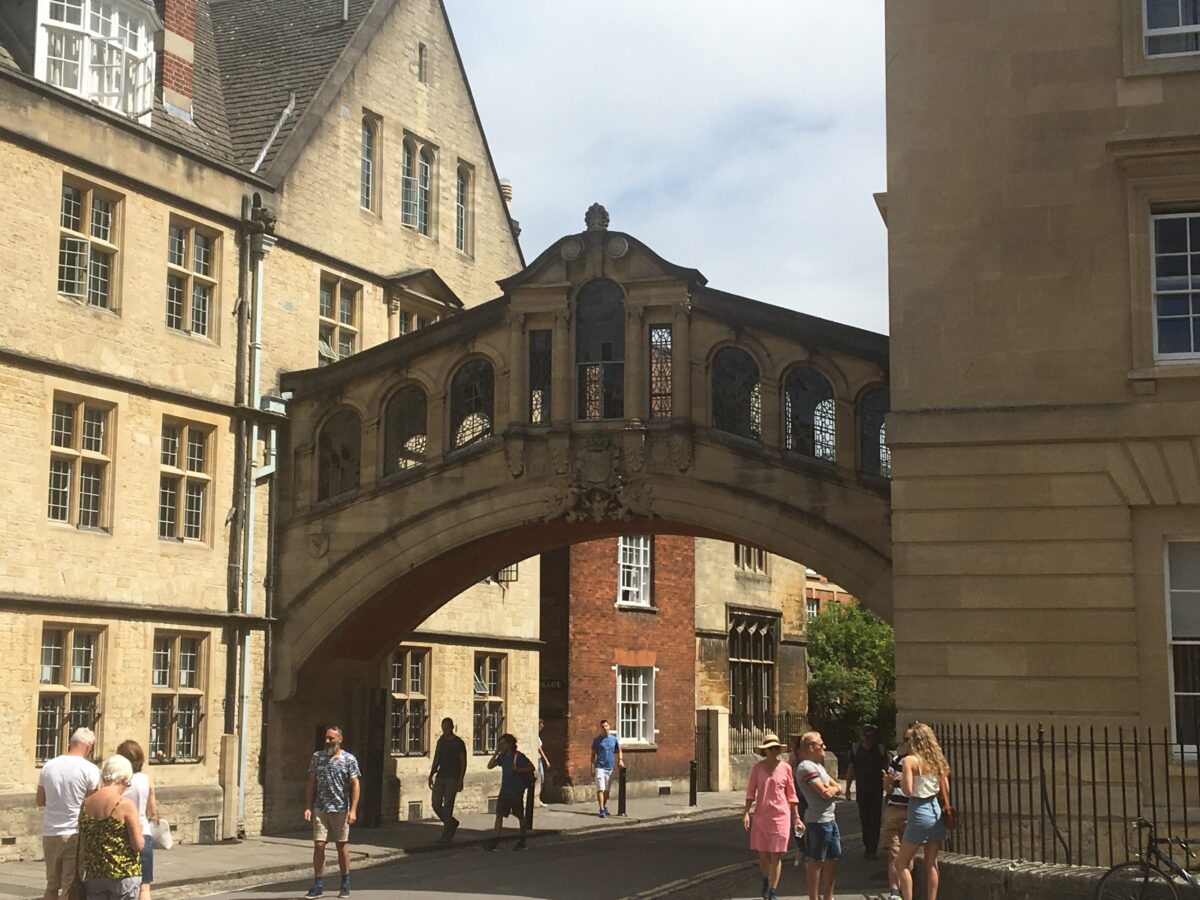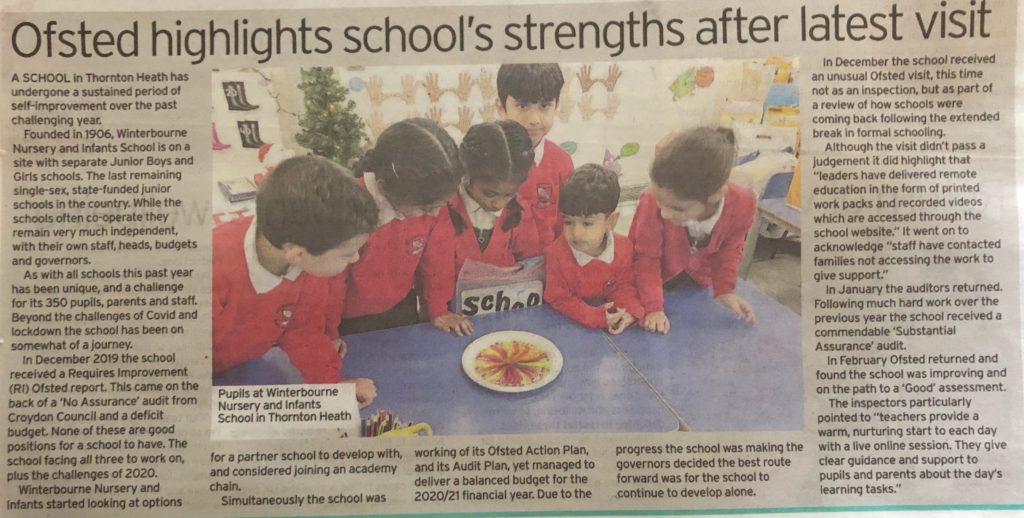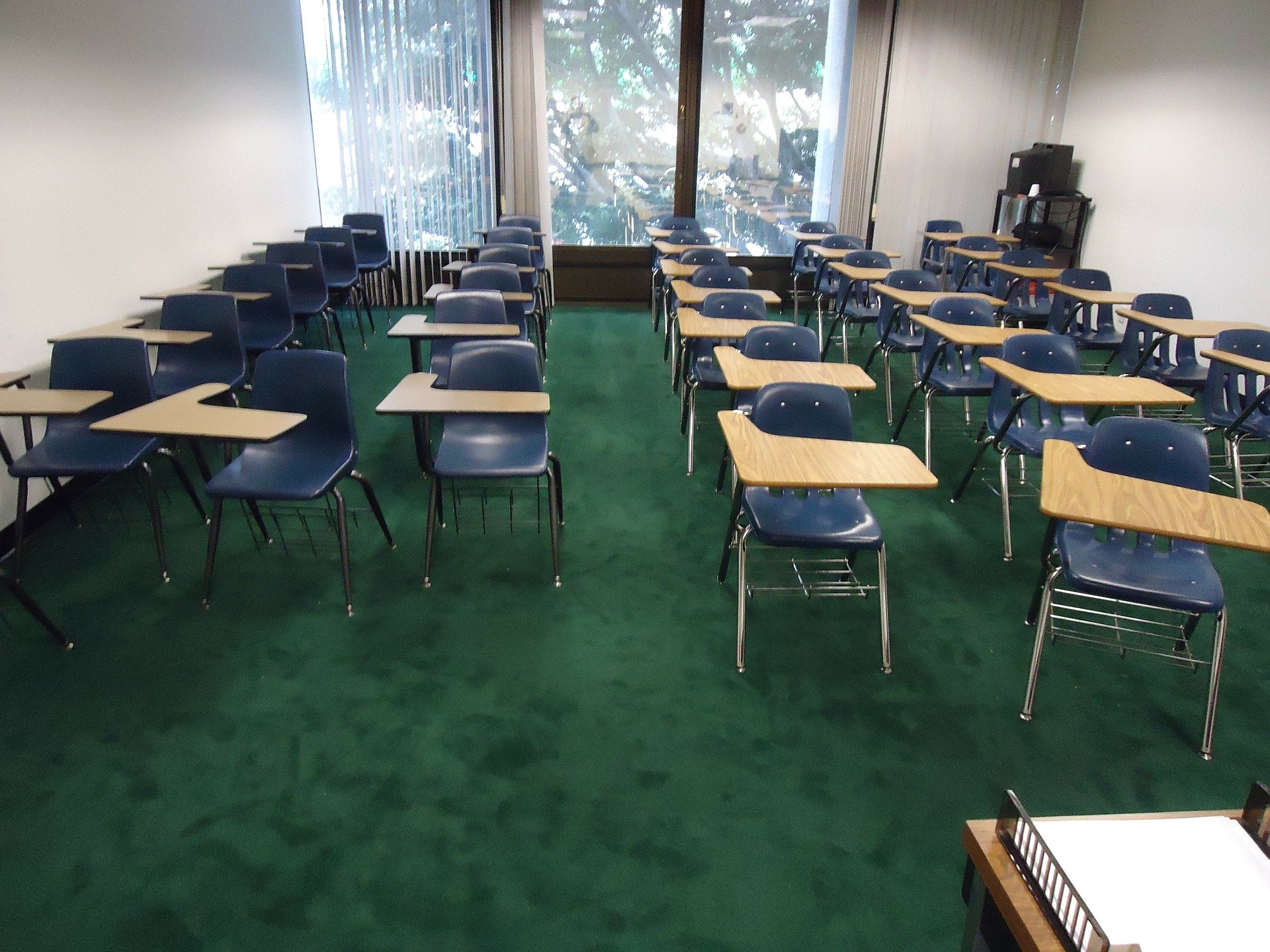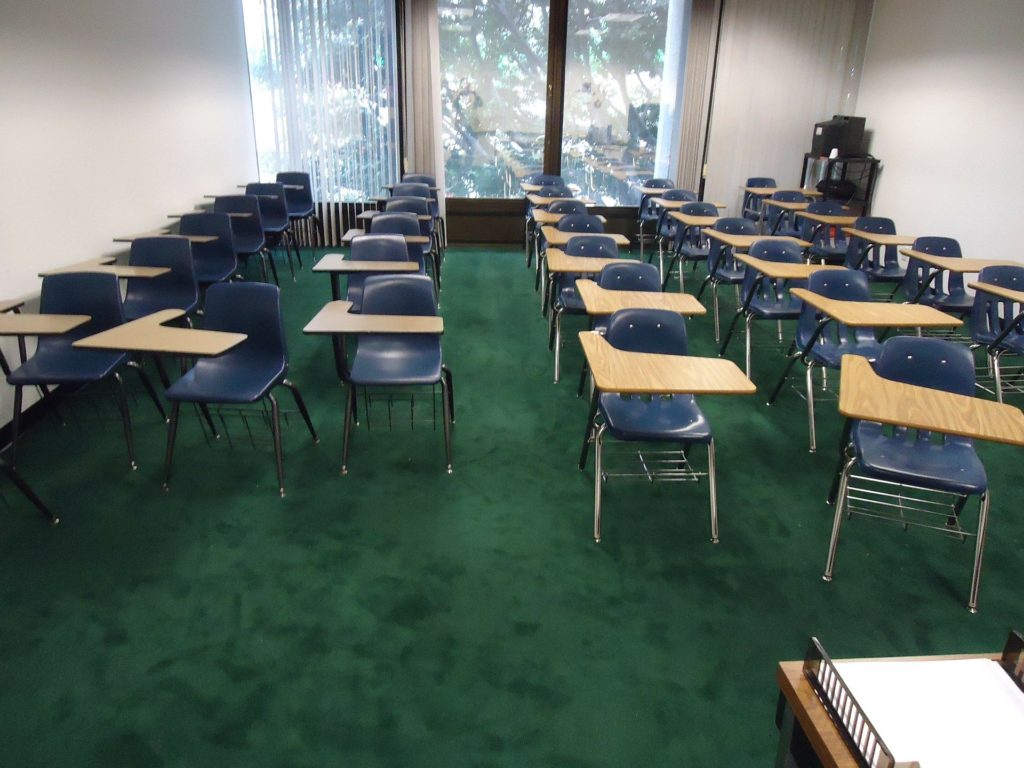On September 5th the Coulsdon and Purley Debating Society debated the motion “University Education should be free for all UK citizens”.
Mike Swadling opposed the motion, and below is his speech delivered to the society. As always with this friendly group the debate was good natured, very well proposed and drew out some great views from the audience.
University Education should be free for all UK citizens.
Now I might be able to dramatically shorten tonight’s debate for us all. I’m tempted to say, ‘I agree’, I agree, University Education should be free for all UK citizens.
- I agree teachers shouldn’t be paid.
- I agree scholarly books should be written by authors for free.
- I agree canteen staff must give their time freely and be forced to provide the food for the students at no cost.
- And if the university doesn’t have the facilities it needs, we must pressgang builders, plumbers, electricians, and anyone else we need to build them, to work, no excuses, at no cost!
Or is that not what you meant?
If you agree with this motion, you must surely agree that anyone upon becoming a qualified lecturer must be conscripted into the profession as some sort of indentured servant, compelled to work for free.
Or do you not agree with that?
“What we’re really talking about here is having someone else pay for it”
Does anyone of you who worked in education, or frankly anywhere, believe you should have worked for free? Education is important do you think people should be forced to give up their time, effort, or property for nothing in the name of education. Of course, you don’t, of course no one thinks teachers should work for free, and of course no one agrees with this motion. No one thinks Education is free, or even should be free. What we’re really talking about here is having someone else pay for it.
University Education of course used to be free for pupils in this country. Before 1998 students would go to university at no cost, some would even receive a grant. But then of course university used to cater to about 30% of the population, prior to 98, and as little as 15% in 1990. We now have over 50% going to university.
It’s easy to provide a service for free at the point of use if it’s used by so few people. As university education grew in the 90s and 00’s of course the costs grew, and these costs needed to be funded. This left the choice of should they be funded by the user of the service who receives the lion share of the benefit or funded by the wider community. To put it bluntly should the cleaner, dustman or Amazon delivery driver pay for the university education of the children of the well to do families who’s houses they service.
“it is more than the amount almost half of the people in this country earn. Only then do you start to repay your loan”
Now let’s consider for a moment what paying for a university education in this country really means. Students are loaned the funds for their course, which costs £9,250 per annum. Repayments to the Plan 2 student loan kick in only when a graduate earns over £27,295 which incidentally puts them in the top half of 20 something income earners, and 53rd percentile of all earners.
This is not a massively high income, but it is more than the amount almost half of the people in this country earn. Only then do you start to repay your loan. Student loans are also written off after 30 years.
General taxation already massively subsidises university education in this country. Our debt to GDP ratio is 100.5% the highest level for over 60 years, going back to when we were still paying for the second world war. This motion asks that we increase it further still, not to improve services, not to incentivise economic growth, not to benefit those who most need it but instead to the benefit of those who have the brightest future and can most afford to pay their way.
“In 2012 only 13% of Free School Meal pupils went to University, today, after all the increases in fees that number is over 20%”
Now it’s not uncommon that people say student loans have put people off higher education, but let’s look at what’s really happened. In 2012 only 13% of Free School Meal pupils went to University, today, after all the increases in fees that number is over 20%. For those eligible for Free School Meals the rate is up to 29%. There is also a huge diversity of pupils going into higher education with 63.5% of Black pupils progressing, 67.8% of Asian and 83.8% of Chinese pupils.
“Fewer opportunities will exist, and they will go to those middle class families with the sharpest elbows”
If we were to make university free to the student, and affordable to the taxpayer we would once again have to cap the number of students at a low number. Who would lose out? Who would be those not able to make the grade. We know, as the evidence from the past shows, it is the working class and the most disadvantaged who will miss out. Fewer opportunities will exist, and they will go to those middle class families with the sharpest elbows. Free University education may feel good but, will in reality deny opportunities to those who most need it and worse will be a regressive tax added onto the bills of those who don’t even receive the benefits of the service.
Now none of this is to say how we provide, and fund university today is ideal. There is lots that can be improved with our current system. Whilst the increase in the numbers going to university is a good thing. The drive to make almost every career accessible only via a degree denies opportunities to millions and means all too often square peg students are driven into round hole jobs.
Surely the wide range of basic care, cleaning, feeding, bedside manner, stock supplies, customer service, and practical skills needed by nurses are often not best taught at a university. These are practical skills, best taught I and many who have written on the subject believe via on-the-job training. No doubt there are skills nurses need that are rightly taught in a classroom. But these can be taught as nurses develop in their career, should they want to take on these extra duties and roles. Since making nursing a degree entry career we have seen reported drops in bedside manner and ward cleanliness. Of course we have, why would it come as a surprise to anyone that someone who has trained to become a highly qualified nurse is reluctant to undertake menial tasks. It may be entirely appropriate for some to enter nursing via a degree, and that route should be available, but why have we chosen to deny nursing as a career path to people who are not academically gifted? Yes, I want a nurse to know how to make an injection, but I care more about their basic care skills than their A Level or GCSE results.
Whilst technically you do not need a degree to become a Police Officer, you do either need a degree or to undertake the completion of the ‘Police Constable Degree Apprenticeship’ which is described as a professional degree-level apprenticeship. Or in layman’s terms a degree. In 2020 official figure show police failed to solve a single burglary in half of neighbourhoods, and three quarters of all burglaries remain unsolved.
Of the 30,265 Police Officers in the Met Police in 2021, 22,753 failed to make a single arrest. We used to recruit many of our police from armed forces, we used to value police with local knowledge. Now we have degree educated police more interested in policing Facebook and Twitter than the streets.
“let’s value Police with the skills of a thief-taker more highly than their ability to recite Latin, list the causes of the Franco Prussian war or tell you about their gender studies degree”
In June the National Police Chiefs’ Council confirmed that police will now attend the scene of every home burglary. How was this ever not the case? You must have gone to university to think something so stupid as not attending every burglary was ever acceptable. Yes, have a route into the police for graduates, but let’s also have a route in for people who can handle a rough situation, who know their community, who can deal with people. Let’s once again let’s value Police with the skills of a thief-taker more highly than their ability to recite Latin, list the causes of the Franco Prussian war or tell you about their gender studies degree. We can reduce the number of students, which would allow greater subsidy for university and other forms of education by removing the requirement for degrees for many careers.
There are other ways we can improve universities in this country. The Nobel prize-winning economist, Milton Friedman used to list the Four Different Ways To Spend Money. These were:
- You can spend your own money on yourself – in which case you are careful what you spend and what you spend it on.
- You can spend your own money on someone else – much like a present. You are careful about how much you spend but maybe don’t worry as much about what you buy.
- You can spend somebody else’s money on yourself – like being on expenses. You are careful to get good things for the money. But you’re not very worried about the price.
- Finally, you can spend somebody else’s money on somebody else – you neither care about the cost or the value.
Funding a free university education for all is rather like the last of those choices. Someone, somewhere in Whitehall takes someone else’s (the taxpayers’) money and provides a service to someone else (the student). Whilst imperfect the current system does mean via a deferred payment, students will pick the best education for them, and presumably seek the best value for money with the degree they undertake. Indeed, the increasing use of apprenticeships and stabilisation of student numbers suggest many are choosing these as the best value route for themselves.
“No doubt the years at university are a great time for many, and a great life experience. But that is no reason to expect others to pay for it”
Now I do want to briefly address the reason some people believe a University Education should be free and widely available. This is that, some believe, it to be some sort of rite of passage. No doubt the years at university are a great time for many, and a great life experience. But that is no reason to expect others to pay for it. Although I could be persuaded on this. I, myself am away on holiday soon, and I hope it will be a great trip. It has certainly cost the earth. If anyone of you here is committed to the idea that we should all help fund other’s opportunities to learn and grow, I am in no way adverse to taking your money to help fund my trip. Please just deposit funds here at the front, during the interval.
If a University Education were to be free for all UK citizens, what limits would be imposed? Could for instance anyone go to university? Would you need a minimum qualification? Could you study any subject? Would you be able to keep doing new courses? I mean, why ever work if you can just stay at Uni?
If the answer to any of these is no, who chooses? Or are we saying the motion is really “A University Education of my specification, should be free for all UK citizens.”? If you impose a minimum level of qualifications once again you tax, then disadvantage, those who can least afford it and you punish the neuro divergent. Free university education would require the willingness of hardworking taxpayers to fund increasingly obscure courses for 30-year-olds who are reluctant to leave academia. Imposing limits, means you create a university system for the few funded by the many.
“If people want degrees and then follow these career paths, fine, good for them, but let’s not burden everyone with the costs”
We already have a problem of what’s known as elite overproduction, a condition which describes a society which is producing too many potential elite members relative to its ability to absorb them. Research suggests 36 per cent of graduates are overqualified for the jobs they currently hold. 3 per cent of post office clerks had a degree in 1992, compared to 30 per cent now, in a job that really hasn’t changed much in that time. In 1992, 3 percent of bar staff, and 2 per cent of security guards had degrees, now those numbers are 19 and 24 per cent respectively. There is nothing wrong with having a degree and working in any of these careers. But are you really saying society needs to pay for degree quality bar staff, rather than say putting them onto an apprenticeship or giving them other on the job training. If people want degrees and then follow these career paths, fine, good for them, but let’s not burden everyone with the costs.
A paid for education does create opportunities to encourage people into qualifications which we as a nation want or need. We could for instance direct students through subsidies that would, I believe, have widespread support. As a nation we don’t educate enough doctors, let’s do that, let’s make the qualifications high to get onto the course, but reduce the costs to encourage more to join. We don’t have enough engineers, or more generally enough people learning STEM subjects, so let’s subsidise them. These are hard subjects that provide great jobs. We don’t need to make the education free, but we could make it cheaper than more popular subjects that provide less societal benefit.
“the necessary restriction needed to fund a so-called free education imposes a tax on all for the benefit of a small often already privileged minority”
The motion is that a ‘University Education should be free for all UK citizens’. No one here believes this, we know an education is not free. The motion proposes someone else pays for the education. As we have discussed someone else paying for someone else’s’ education can lead to some perverse outcomes. But mostly the necessary restriction needed to fund a so-called free education imposes a tax on all for the benefit of a small often already privileged minority. The reduction will reduce opportunities for those who most need them.
Let’s make education pay, make it good value, and make it available to all who benefit the most, which is why I ask you to oppose this motion.
Summary
I’ve already spoken about how fees for UK Universities, haven’t stopped UK students from all backgrounds studying here. But let’s look at international students. They pay on average £22,000 per annum to attend a UK university. The number of international students rose from 450,000 in 2016 to over 600,000 today. The top 10 list of countries sending students to the UK includes, China, India, Nigeria, Bangladesh, Malaysia, France, Italy, and Spain. All of which have a lower GDP per capita than the UK. Don’t tell me student fees put people off studying in UK Universities or make universities only a place for the rich. It may feel like that’s the case, but it simply isn’t born out by the facts.
“It won’t be the pupils of private schools missing out when there are fewer university places, they will know how to still get into their academy of choice”
If people from all over the world think that paying £66k for 3-year UK degree is the right choice for them, why shouldn’t our students continue to pay £27k rather than move that cost onto others. Taxpayers already fund Higher Education in this country to the tune of £4.5 billion, moving more burden to taxpayers will mean we need to constrain costs and restrict supply. It won’t be the pupils of private schools missing out when there are fewer university places, they will know how to still get into their academy of choice. It will mean, fewer places for pupils from the bog-standard comprehensives, and from the families not used to sending their children off to Uni.
The road to hell is paved with good intentions. I would ask you to support the best outcomes, rather than the best intentions and oppose this motion.

To find out more about the Coulsdon and Purley Debating Society visit their Facebook page at https://www.facebook.com/CoulsdonPurleyDebatingSociety/ or email them at coulsdonpurleydebating@gmail.com.









